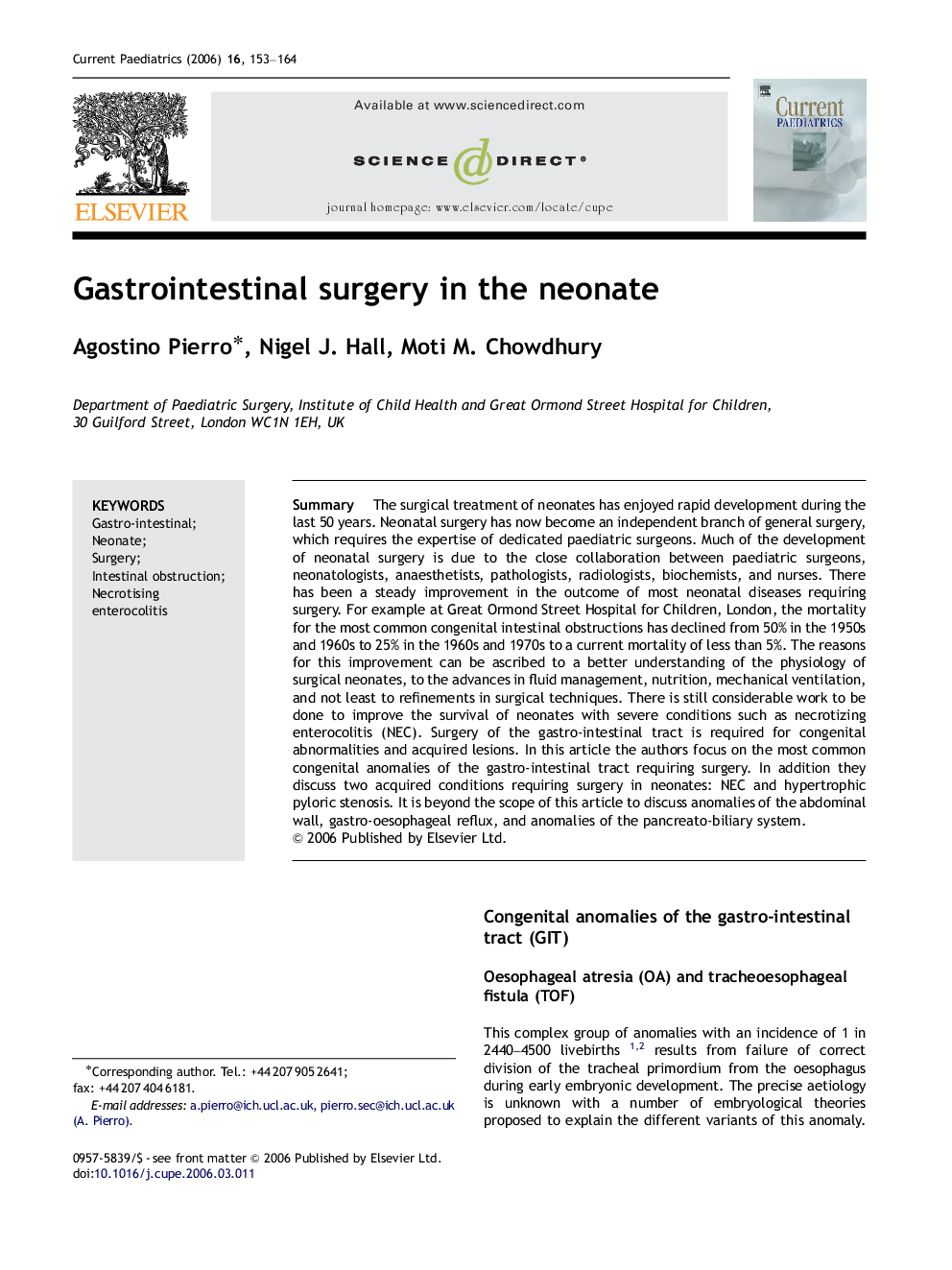| Article ID | Journal | Published Year | Pages | File Type |
|---|---|---|---|---|
| 4152293 | Current Paediatrics | 2006 | 12 Pages |
SummaryThe surgical treatment of neonates has enjoyed rapid development during the last 50 years. Neonatal surgery has now become an independent branch of general surgery, which requires the expertise of dedicated paediatric surgeons. Much of the development of neonatal surgery is due to the close collaboration between paediatric surgeons, neonatologists, anaesthetists, pathologists, radiologists, biochemists, and nurses. There has been a steady improvement in the outcome of most neonatal diseases requiring surgery. For example at Great Ormond Street Hospital for Children, London, the mortality for the most common congenital intestinal obstructions has declined from 50% in the 1950s and 1960s to 25% in the 1960s and 1970s to a current mortality of less than 5%. The reasons for this improvement can be ascribed to a better understanding of the physiology of surgical neonates, to the advances in fluid management, nutrition, mechanical ventilation, and not least to refinements in surgical techniques. There is still considerable work to be done to improve the survival of neonates with severe conditions such as necrotizing enterocolitis (NEC). Surgery of the gastro-intestinal tract is required for congenital abnormalities and acquired lesions. In this article the authors focus on the most common congenital anomalies of the gastro-intestinal tract requiring surgery. In addition they discuss two acquired conditions requiring surgery in neonates: NEC and hypertrophic pyloric stenosis. It is beyond the scope of this article to discuss anomalies of the abdominal wall, gastro-oesophageal reflux, and anomalies of the pancreato-biliary system.
